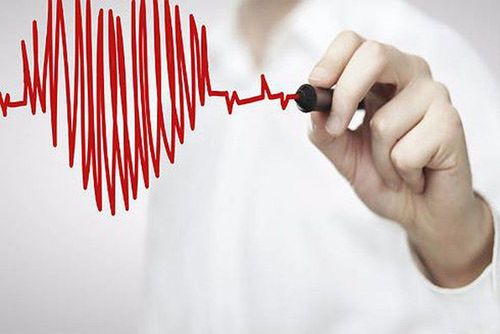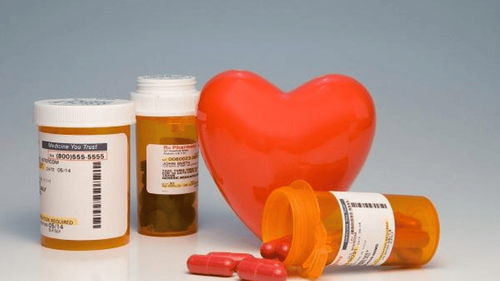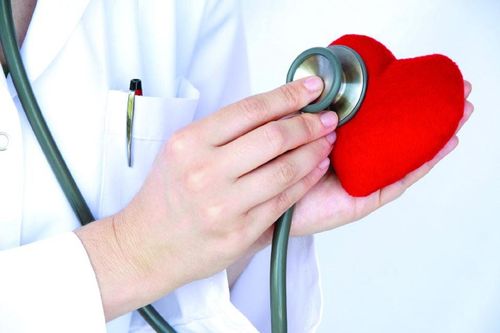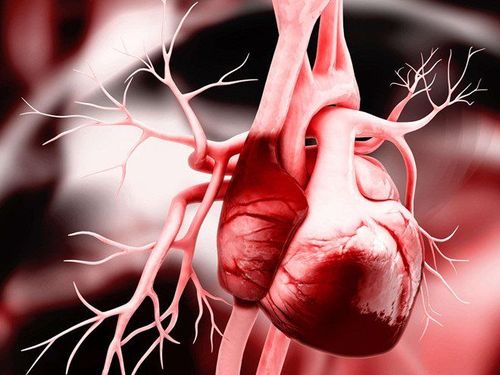This is an automatically translated article.
The article is expertly consulted by MSc Vu Thi Tuyet Mai - Cardiologist, Vinmec Central Park International General Hospital.
Heart failure is one of the most common cardiovascular diseases, with an increasing prevalence in the population. The current treatment is highly effective, but the diet for heart failure patients and what should be kept in mind when taking care of heart failure patients to increase the effectiveness of treatment, increase life expectancy and improve quality. life for the patient.
1. Overview of heart failure
Heart failure is the result of structural damage to the heart or dysfunction of the heart that leads to a decrease in the heart's ability to pump blood to the organs (systolic heart failure) or reduced blood capacity (heart failure). stretch).
New York Heart Association (NYHA) heart failure classification based on the patient's functional symptoms.
Grade I: No limitation of physical activity, normal activities do not cause fatigue, shortness of breath or palpitations Grade II: Slight limitation of physical activity. The patient's usual physical activity leads to fatigue, palpitations, dyspnea or chest pain and subsides with rest. Grade III: Very limited physical activity. Although he is healthy at rest, he has symptoms of fatigue and shortness of breath with just light exercise... Grade IV: No physical activity does not cause discomfort. Symptoms of heart failure occur even at rest, even a slight physical activity increases the symptoms. Symptoms commonly seen in patients with heart failure include:
Shortness of breath, often onset on exertion, relieved with rest. The degree of dyspnea increases in later stages of heart failure. Cough usually occurs when lying down, at night, may cough with pink sputum. Leg swelling, ascites and rapid weight gain. The heart rate is usually fast. May be accompanied by chest pain, which increases with exertion.
2. Notes when taking care of patients with heart failure

Health education counseling for heart failure patients is very important, contributing to improving the effectiveness of treatment, prolonging the progression of the disease, helping to improve the patient's quality of life.
2.1 Heart failure diet A varied diet provides enough vitamins and nutrients. Increase intake of green vegetables, fruits, low-fat dairy products, fish, lean meat, poultry, eggs, soy products and vegetable oils. For heart failure patients taking anticoagulants: Limit the intake of dark green leafy vegetables such as spinach, broccoli, peas, green beans, radishes, parsley and Lettuce... Process food in soft, mushy form. Do not eat fermented foods such as cabbage, vegetables, beans, pickles, processed foods, high in fat. Salt restriction, especially in severe heart failure, is usually limited to <1.5g of salt per day. Get in the habit of reading the sodium (Sodium) content listed in the ingredients in pre-packaged foods. Avoid drinking a lot of water: limit fluid to 1.5-2 liters/day in patients with severe heart failure to reduce symptoms. Limit hypotonic solutions to reduce hyponatremia. Routine fluid restriction is not necessary in all patients with mild to moderate symptomatic heart failure. Weight-based fluid restriction (30 mL/kg body weight, 35 mL/kg if weight > 85 kg) may be less likely to cause thirst. Eat dinner early, ensure that meals are far from bedtime, after eating need to rest for 30-40 minutes Reduce alcohol consumption: do not drink alcohol in patients with alcoholic cardiomyopathy. Also, limit alcohol according to the usual guidelines (2 units/day in men, or 1 unit/day in women). 1 unit = 10 mL pure alcohol (1 glass of wine, 1/2 can of beer, 1 cup of spirits). Quit smoking: The substances in tobacco cause vasoconstriction and increase the risk of atherosclerosis, which increases the burden on the heart. Drink water according to the patient's needs and the degree of heart failure. Avoid infusion without medical advice. If the patient has a lot of edema, it is necessary to limit the amount of water in the body and eat completely bland. 2.2 Physical activity Benefits of physical activity:
Helps control a reasonable weight. Stabilize blood pressure and heart rate. Stabilize blood sugar and blood fat. Helps to relax and improve health. How physical activity is required:
Regular exercise will help increase blood circulation and prevent the formation of blood clots. Depending on the stage of the disease and health condition, you can choose moderate exercises such as walking, meditating, cycling... Things to avoid when practicing: Do not practice sports that require a lot of strength such as running. walking, lifting weights..., activities that cause symptoms such as: shortness of breath; dizziness, lightheadedness; chest pain; nausea; cold sweats... if these signs occur, stop exercising immediately, do not exercise on an empty stomach or immediately after meals, do not do strenuous exercises If you stop exercising for a few days for some reason, When practicing again, you need to exercise lighter than usual, gradually increasing the intensity to the previous level in the following training sessions. Avoid exercising outdoors when the weather is too hot, too cold, and wet: high humidity makes you tired, too hot or too cold temperatures affect the circulatory system, causing shortness of breath, chest pain. If you feel tired immediately after exercising or the next day, you need to reduce the intensity of the exercise

2.3 Adherence to treatment The use of heart failure medications not only improves symptoms, but can help prolong life and reduce mortality.
Understanding the importance of sticking to recommended treatments and staying motivated helps patients stick to their treatment plan. Salt restriction may help control symptoms of congestion in symptomatic grade III/IV heart failure B.
Understand indications, dosage and effectiveness of drugs. Recognize common side effects of medications used.
It is important for the patient's adherence to treatment, the patient needs to take the medicine as prescribed, remember to take the medicine every day. If the patient can't remember the time to take the medicine, it is necessary to have the help of relatives to avoid forgetting to take the medicine.
Even if the patient feels well, there are no symptoms. Also, never stop taking or change the dose or take any other medication without consulting your doctor.
2.4 Other Notes Monitor and recognize the mechanical and physical symptoms of heart failure. Daily weight recording, fast weight gain detection. Know how and when to notify medical personnel. In the event of increased dyspnea, edema or sudden unexplained weight gain > 2 kg in 3 days, the patient may increase the diuretic dose and/or notify his or her healthcare provider. Flexible use of diuretics if deemed appropriate and recommended after close instruction and supervision. When you have more than one of the following signs: difficulty breathing, persistent cough or wheezing, fluid retention in tissues such as swelling in the legs or ankles, constant fatigue, loss of appetite or nausea, difficulty exercising Central thinking or memory loss, increased heart rate requires medical examination. Complete influenza and pneumococcal pneumonia vaccinations according to the instructions of medical staff. Patients with heart failure may present with symptoms of depression and signs of cognitive decline, so it is advisable to assist the patient in socializing Travel or engage in recreational activities depending on the situation. health status. When traveling, it is important to bring a summary of your medical history, current medications, and other necessary prophylactics. Monitor and balance daily fluid intake, especially in flight and in hot climates. Note the side effects of the drug when exposed to a lot of sunlight in some drugs (eg Amiodarone). Talk to your healthcare provider and make sure it's safe to have sex. Stable patients can resume normal sexual activity without worsening symptoms of heart failure. Care should be taken when using drugs to treat erectile dysfunction. Breathing and sleep disorders: preventive measures such as weight loss in obese patients, smoking cessation, and alcohol restriction. Knowledge to choose appropriate treatment. Heart failure is a chronic disease, treatment is a long-term process, health counseling and education for heart failure patients contributes to improving treatment results, helping patients prolong life and improve quality of life. living.
Please dial HOTLINE for more information or register for an appointment HERE. Download MyVinmec app to make appointments faster and to manage your bookings easily.














